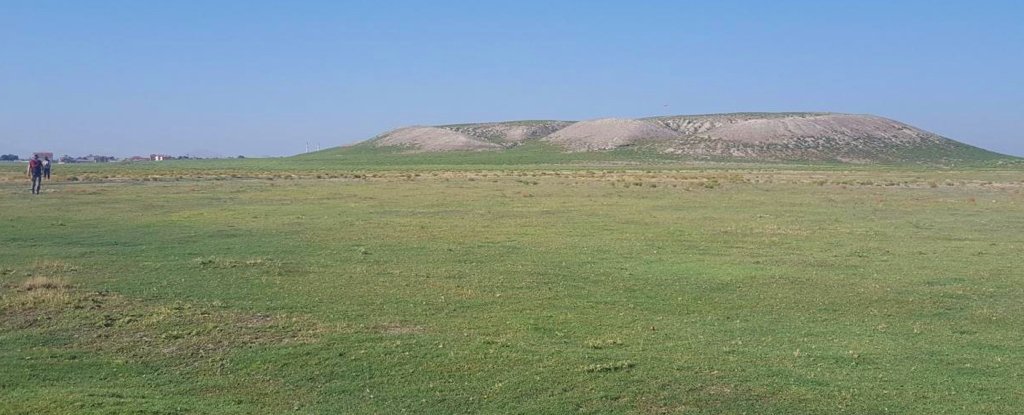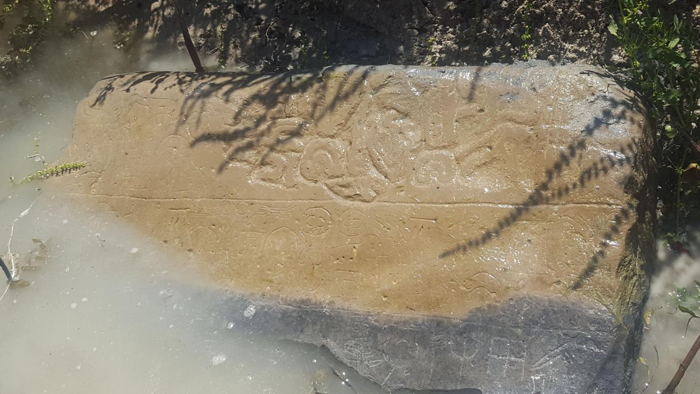Anthropology
Related: About this forumArchaeologists in Turkey Have Discovered a Mysterious Ancient Kingdom Lost in History

The archaeological mound at Türkmen-Karahöyük. (James Osborne)
PETER DOCKRILL25 JANUARY 2021
It was said that all he touched turned to gold. But destiny eventually caught up with the legendary King Midas, and a long-lost chronicle of his ancient downfall appears to have literally surfaced in Turkey.
In 2019, archaeologists were investigating an ancient mound site in central Turkey called Türkmen-Karahöyük. The greater region, the Konya Plain, abounds with lost metropolises, but even so, researchers couldn't have been prepared for what they were about to find.
A local farmer told the group that a nearby canal, recently dredged, revealed the existence of a large strange stone, marked with some kind of unknown inscription.
"We could see it still sticking out of the water, so we jumped right down into the canal – up to our waists wading around," said archaeologist James Osborne from the University of Chicago in early 2020.
"Right away it was clear it was ancient, and we recognised the script it was written in: Luwian, the language used in the Bronze and Iron ages in the area."
"Right away it was clear it was ancient, and we recognised the script it was written in: Luwian, the language used in the Bronze and Iron ages in the area."

The half-submerged stone with inscriptions dating to the 8th century BCE. (James Osborne)
More:
https://www.sciencealert.com/archaeologists-in-turkey-have-discovered-a-mysterious-ancient-kingdom-lost-in-history
tblue37
(65,227 posts)dchill
(38,447 posts)fierywoman
(7,671 posts)Judi Lynn
(160,450 posts)The two examples of music done in this mode astonished me! I can even remember the very times in my life I heard these pieces of music for the first time, and they lodged permanently within as two of the most wonderful pieces I've ever heard, and they are totally different from all others to a young person. I'm overwhelmed! I'm posting the two pieces of music right here, from this link:
The Phrygian Mode: What Is It?
By Dan Farrant
Last updated 17th June 2020
If you’ve ever heard a piece of music that sounds a bit Egyptian, then it’s likely that it was using a type of scale called the phrygian mode. It’s quite an unusual scale that isn’t very common but pops up in Spanish music and lots of film music.
. . .
More:
https://hellomusictheory.com/learn/phrygian-mode/
(I always thought if the Northern Lights had a sound it would be exactly like the Adagio for Strings.)
Thank you, fierywoman, for dropping that term here! So interesting.
fierywoman
(7,671 posts)(C maj scale, but use the notes from E to E) I would have explained it exactly the same way.
What fascinates me is that this ancient system is still with us -- carried from the early Xtian church via the church -- you can hear these modal scales all over the place (Vivaldi, Bach, Tschaikovsky, etc) but what REALLY thrills me is that jazz musicians improvise using these scales and are very fluent with them. (I'm classical, so I know about them but am not fluent.)
Again, thanks for all the wonderful articles you share here. ![]()